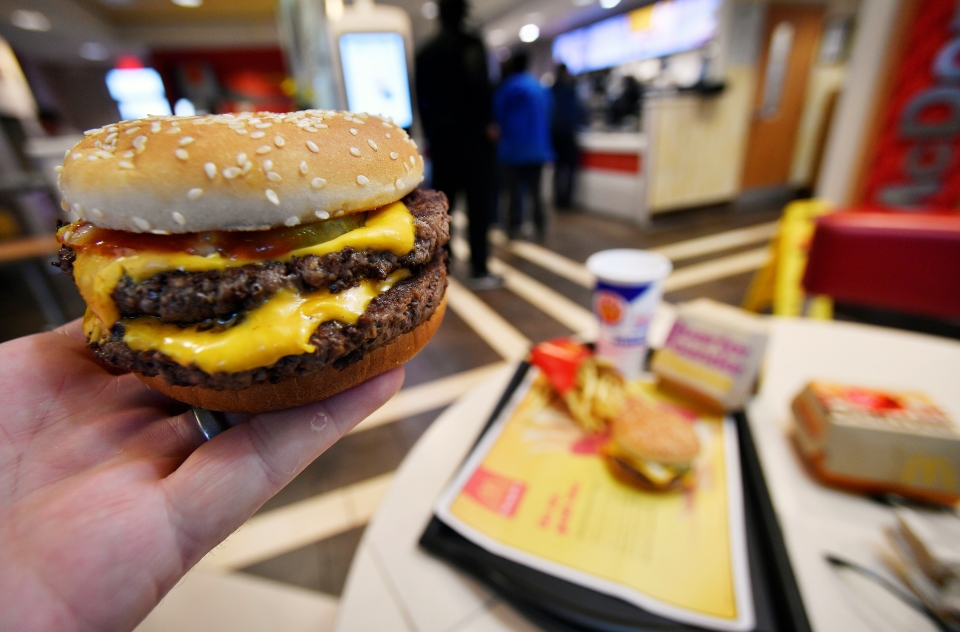McDonald’s said Wednesday that customers should feel confident ordering from its restaurants despite a deadly E. coli outbreak linked to its Quarter Pounder hamburgers.
The outbreak has sickened at least 49 people in 10 states, and one person has died.

A preliminary investigation by the U.S. Food and Drug Administration suggests fresh onions that are served raw on Quarter Pounders were a likely source of contamination. The company said Wednesday it is searching for a new regional supplier for fresh onions, and that Quarter Pounders have been removed from menus in one-fifth of its U.S. restaurants.
McDonald’s says it has been working closely with federal food safety regulators since late last week, when it was alerted to the potential outbreak.
The U.S. Centers for Disease Control and Prevention reported the outbreak late Tuesday. It said infections were reported between Sept. 27 and Oct. 11 in Colorado, Iowa, Kansas, Missouri, Montana, Nebraska, Oregon, Utah, Wisconsin and Wyoming. One person in Colorado died, and 10 people were hospitalized.
State and local public health officials are interviewing people about the foods they ate in the week before they got sick. Of the 18 people interviewed, all reported eating at McDonald’s and 16 people reported eating a beef hamburger. Twelve reported eating a Quarter Pounder.
McDonald’s says the investigation has been complicated by the scope of the problem. The company said it serves 1 million Quarter Pounders in the affected areas every two weeks. McDonald’s also said this strain of E. coli isn’t usually found in onions.
McDonald’s said its initial findings suggest that some of the reported illnesses are linked to onions from a single supplier. McDonald’s said the onions are cleaned and sliced by the supplier, which regularly tests for E. coli. They are then packaged for individual use on Quarter Pounders.
McDonald’s said it has extensive food safety practices, and that nothing in the government’s investigation has indicated that there is an issue with its food preparation.
The incubation period for E. coli is only a couple of days, so illness would be quickly apparent to anyone affected, said Donald Schaffner, a food safety expert at Rutgers University. “If you ate these burgers in September and now it’s the middle of October and you didn’t get sick, you’re probably OK,” he said.
E. coli bacteria are harbored in the guts of animals and found in the environment. Infections can cause severe illness, including fever, stomach cramps and bloody diarrhea. People who develop symptoms of E. coli poisoning should seek health care immediately and tell the provider what they ate.
Erlinger said it’s possible the contaminated product has already worked its way through McDonald’s supply chain. But the company will work closely with the government and cooperate with the investigation, he said. Erlinger declined to name the supplier or say if it supplies other restaurant chains or grocery stores.
McDonald’s shares fell 4.5% in early trading Wednesday.

